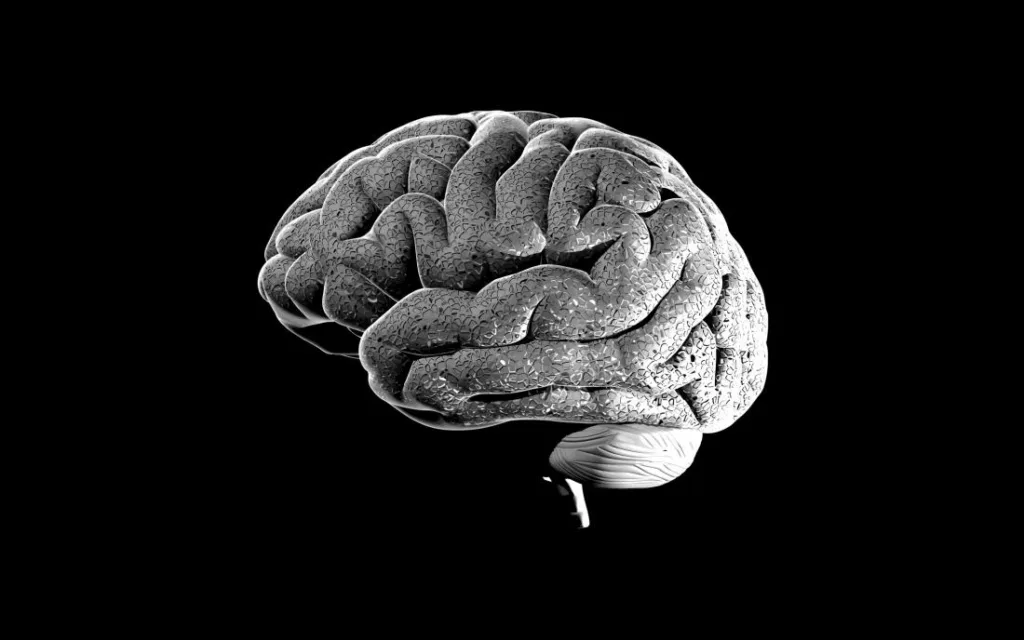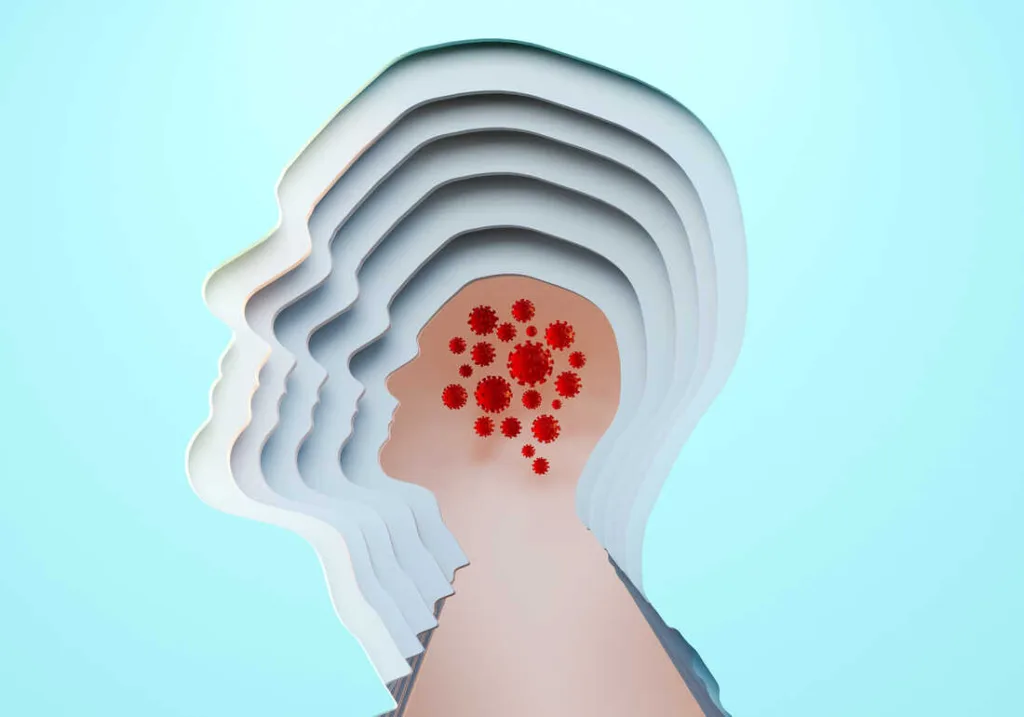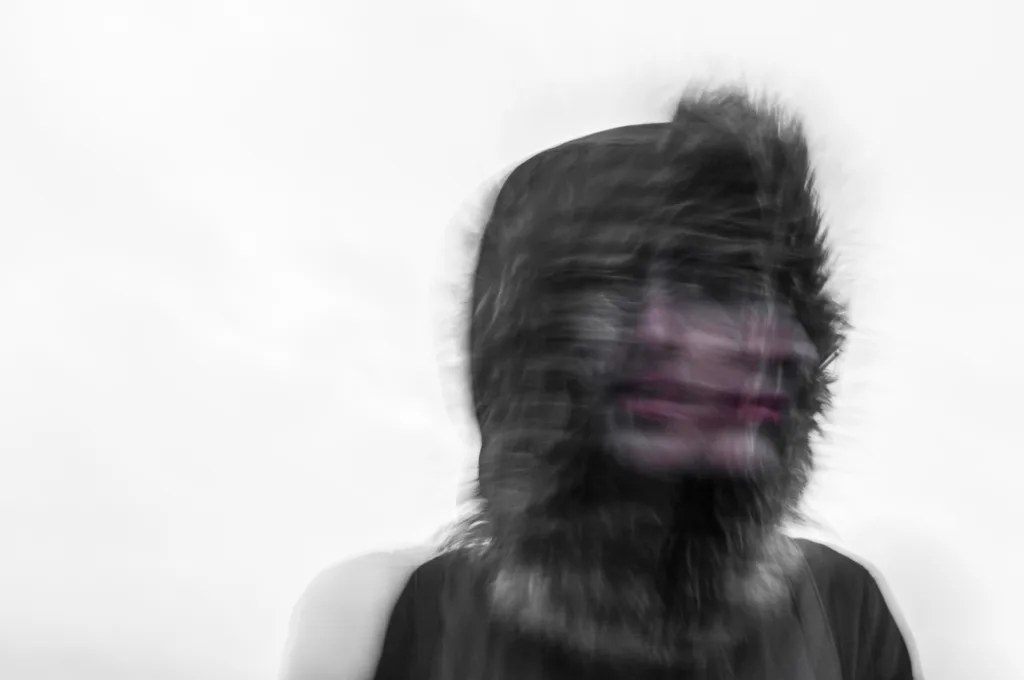Psychosis is a severe mental disorder that can be characterized by a loss of touch with reality. Floridly psychotic is a term used to describe a specific type of psychosis that is marked by extremely vivid and intense symptoms. In this blog post, we will explore what floridly psychotic means, what the symptoms are, and how it can be treated.
The term “floridly psychotic” is used to describe an extreme form of psychosis. It is characterized by vivid and intense symptoms that can be difficult to manage. The symptoms of floridly psychotic episodes can be so severe that they can lead to hospitalization or even be life-threatening.
The symptoms of floridly psychotic episodes can vary from person to person, but some common symptoms include:
1. Hallucinations: Floridly psychotic individuals may experience vivid hallucinations that can seem very real. They may see, hear, or feel things that are not there.
2. Delusions: Floridly psychotic individuals may have delusions that are intense and persistent. They may believe things that are not true, such as that they are being persecuted or that they have special powers.
3. Disorganized thinking and speech: Floridly psychotic individuals may have difficulty organizing thir thoughts and may speak in a way that is difficult to understand.
4. Agitation: Floridly psychotic individuals may become extremely agitated and may exhibit violent behavior.
Floridly psychotic episodes are typically treated with a combination of medication and therapy. Antipsychotic medications can help to reduce symptoms such as hallucinations and delusions. Therapy can help individuals to understand their symptoms and develop coping mechanisms for managing them.
In some cases, hospitalization may be required to manage floridly psychotic episodes. This is especially true if the individual is exhibiting violent behavior or is at risk of harming themselves or others.
Floridly psychotic is a term used to describe an extreme form of psychosis that is marked by intense and vivid symptoms. It is important for individuals experiencing floridly psychotic episodes to seek treatment as soon as possible. With proper treatment and support, individuals with floridly psychotic episodes can lead fulfilling lives.
Types of Psychosis
Psychosis is a mental health condition that affects an individual’s perception of reality. There are three main types of psychosis, namely:
1. Schizophrenia: Schizophrenia is a severe mental illness that affects an individual’s ability to think, feel, and behave clearly. The symptoms of schizophrenia include hallucinations, delusions, disorganized thinking and speech, and a lack of motivation.
2. Bipolar Disorder: Bipolar disorder is a mental health condition that causes extreme mood swings. Individuals with bipolar disorder experience episodes of mania and depression. During manic episodes, they may experience hallucinations and delusions.
3. Major Depressive Disorder with Psychotic Features: Major depressive disorder is a mental health condition that causes persistent feelings of sadness, hopelessness, and worthlessness. In some cases, individuals with major depressive disorder may experience psychotic symptoms such as hallucinations and delusions. This is known as major depressive disorder with psychotic features.
It is important to note that psychosis can also occur as a result of drug abuse, medication side effects, or medical conditions such as brain tumors or infections. If you or someone you know is experiencing symptoms of psychosis, it is important to seek professional help.

Symptoms of Psychotic Disorder
The four major symptoms of psychotic disorder include hallucinations, delusions, disorganized behavior, and negative symptoms. Hallucinations refer to sensory experiences that are not based in reality, such as hearing voices that are not there or seeing things that are not present. Delusions are fixed false beliefs that are not based in reality, such as believing that one is being folowed or that they have special abilities. Disorganized behavior refers to actions that do not make sense or are impulsive, such as speaking incoherently or behaving in a way that is not appropriate for the situation. Negative symptoms include a lack of emotion or interest in activities that were previously enjoyed, poor grooming habits, and a general lack of motivation. It is important to note that these symptoms can vary in severity and duration depending on the individual and the specific type of psychotic disorder they are experiencing.
Types of Psychosis
Psychosis is a mental health condition characterized by a loss of touch with reality, including symptoms such as delusions, hallucinations, disorganized thinking, and abnormal behavior. There are several different types of psychosis, including:
1. Schizophrenia: Schizophrenia is a chronic mental health disorder that affects about 1% of the population. It typically develops in the late teens or early adulthood and is characterized by symptoms such as delusions, hallucinations, disorganized thinking, and abnormal behavior.
2. Schizoaffective disorder: Schizoaffective disorder is a type of psychosis that combines symptoms of schizophrenia with mood disorder symptoms such as depression or bipolar disorder.
3. Brief psychotic disorder: Brief psychotic disorder is a type of psychosis that lasts for less than one month and is usually triggered by a stressful event such as a death or a traumatic event.
4. Delusional disorder: Delusional disorder is a type of psychosis in which a person experiences persistent false beliefs (delusions) that are not based in reality. These beliefs may involve persecution, grandiosity, jealousy, or other themes.
5. Substance-induced psychotic disorder: Substance-induced psychotic disorder is a type of psychosis that is caused by drug or alcohol use. It typically resolves once the substance use is stopped.
It’s important to note that psychotic symptoms can also occur in other mental health conditions such as bipolar disorder and major depressive disorder. If you or someone you know is experiencing symptoms of psychosis, it’s important to seek professional help right away.
Signs of Psychosis in an Individual
Psychosis is a mental health condition that can affect a person’s ability to thik clearly, make rational decisions, and distinguish between what is real and what is not. There are several signs and symptoms that can indicate that a person is experiencing a psychotic episode.
The most common symptom of psychosis is hallucinations, which are sensory experiences that are not real. These can include seeing, hearing, feeling, or smelling things that aren’t there. Delusions are another common symptom of psychosis, which are strongly held beliefs that are not based in reality. These can include beliefs that someone is out to get them or that they have special powers.
Other symptoms of psychosis can include disordered thinking, such as racing thoughts or difficulty organizing thoughts, and disordered behavior, such as acting in ways that are unusual or inappropriate. A person experiencing psychosis may also have difficulty communicating or may seem confused or disoriented.
It’s important to note that experiencing one or more of these symptoms does not necessarily mean that a person is psychotic. However, if you are concerned about someone’s mental health, it’s important to seek help from a mental health professional who can provide a proper diagnosis and treatment.
Causes of Psychosis
Psychosis can be triggered by various factors, including physical illness or injury. High fever, head injury, or exposure to lead or mercury can cause individuals to see or hear thins that are not there. Neurodegenerative diseases like Alzheimer’s or Parkinson’s can also lead to hallucinations or delusions. Substance abuse, particularly with drugs like marijuana, LSD, or amphetamines, can also trigger psychosis. Extreme stress, sleep deprivation, and traumatic experiences can also be contributing factors. Additionally, genetics and family history of mental illness can play a role in the development of psychosis. It is important to seek medical attention if you or someone you know experiences symptoms of psychosis.

Psychosis Triggered by Mental Illness
Psychosis can be triggered by varous mental health conditions, but the most common one is schizophrenia. Schizophrenia is a complex mental illness that affects a person’s ability to think, feel, and behave clearly. It is characterized by symptoms such as hallucinations, delusions, disorganized thinking, and unusual behavior. Additionally, bipolar disorder can also trigger psychotic episodes. This condition causes extreme mood swings, with episodes of depression and mania. severe stress or traumatic events can also trigger psychosis in some people. It is important to note that psychosis can be a symptom of various mental illnesses, and it is important to seek professional help if you or someone you know is experiencing such symptoms.
Signs and Symptoms of a Psychotic Breakdown
A psychotic breakdown, also known as a psychotic episode or psychotic break, is characterized by sudden and severe changes in a person’s behavior, thoughts, and emotions. During a psychotic breakdown, a person may experience delusional thoughts and beliefs that are not based in reality. They may hear or see things that are not there, known as auditory and visual hallucinations. They may also experience intense paranoia and fear, leading them to believe that others are plotting against them or that they are in danger.
Other symptoms of a psychotic breakdown may include disordered thinking, confusion, and difficulty communicating. A person may exhibit unusual behaviors, such as speaking incoherently or suddenly changing moods. Additionally, a person experiencing a psychotic breakdown may become socially withdrawn, neglect personal hygiene, and lose touch with reality.
It’s important to note that a psychotic breakdown can differ in severity and duration depending on the individual’s mental health condition. It’s also crucial for anyoe experiencing symptoms of a psychotic breakdown to seek medical attention promptly. With proper treatment and support, individuals with psychotic disorders can manage their symptoms and live fulfilling lives.
Can People with Psychosis Experience Love?
Someone with psychosis can fall in love just like anyone else. Psychosis is a mental health condition that affects a person’s ability to distinguish what is real from what is not. This can lead to symptoms such as hallucinations, delusions, and disordered thinking, wich can interfere with social interactions and relationships. However, it is important to note that having psychosis does not mean a person cannot experience romantic feelings or form meaningful connections with others.
In fact, research has shown that individuals with psychosis can and do fall in love. Studies have found that people with schizophrenia, a type of psychosis, have similar rates of romantic relationships as the general population. While the process of forming relationships may be more challenging for someone with psychosis, it is not impossible.
It is important for individuals with psychosis to receive appropriate treatment and support to manage their symptoms and improve their social and emotional functioning. This can help them to build and maintain healthy relationships with others, including romantic partners. With the right support, someone with psychosis can find love and experience the joys of a fulfilling relationship.
Signs of Psychosis
Two significant signs of psychosis are hallucinations and delusions. Hallucinations are sensory experiences, such as hearing voices or seeing things that are not real, which can feel very vivid and real to a person experiencing them. Delusions are beliefs that are not based in reality and can be very strong and persistent. These beliefs may include paranoid thoughts, such as feeling that someone is trying to harm them or believing that they have special powers or abilities. Both hallucinations and delusions can be very distressing for the person experiencing them and can interfere with their ability to function in daily life. It is important to seek professional help if you or someone you know is experiencing thse symptoms.

The Most Common Form of Psychosis
The most common psychosis is schizophrenia. Schizophrenia is a severe mental illness that affects an individual’s ability to think, feel, and behave clearly. People with schizophrenia often experience delusions, hallucinations, and disordered thoughts, which can make it difficult for them to interact with others, attend school or work, and maintain relationships. Schizophrenia is a lifelong condition that typically develops in young adulthood and requires ongoing treatment, including medication and therapy. While other types of psychotic disorders exist, such as schizoaffective disorder, schizophrenia is the most common and well-known of these conditions.
Mild Forms of Psychosis
Psychosis is a mental health condition that can have a range of symptoms, including delusions, hallucinations, disordered thinking, and unusual behaviors. A mild form of psychosis is typically characterized by less severe symptoms, but stil involves some level of detachment from reality. This can include having unusual beliefs, experiencing mild hallucinations or delusions, or having difficulty distinguishing between what is real and what is not. It is important to note that even a mild form of psychosis can have a significant impact on a person’s daily life and should be taken seriously. If you or someone you know is experiencing symptoms of psychosis, it is important to seek professional help from a mental health provider.
Treating Psychosis in an Individual
Getting someone out of psychosis is a complex process that typically requires medical intervention and support from mental health professionals. The first step in treating psychosis is to seek professional help from a psychiatrist, psychologist or mental health practitioner. The treatment plan may include medication to alleviate symptoms such as hallucinations and delusions.
In addition to medication, therapy is also an essential component of treating psychosis. Cognitive-behavioral therapy (CBT) and family therapy are two common types of therapy used to help people with psychosis. CBT seeks to help the person identify and challenge irrational thoughts and beliefs that may be contributing to their symptoms. Family therapy, on the other hand, involves the person’s family and loved ones in the treatment process, helping them understand the condition and how to support the person in their recovery.
It is important to note that recovery from psychosis is a gradual process and may take time. It is essential to provide a supportive environment for the person, encouraging them to continue with their treatment plan and offering emotional support. It is also important to ensure that the person is getting enough rest, exercise, and a healthy diet, as these factors can impact the severity of the symptoms.
Getting someone out of psychosis requires seeking professional help, folowing a treatment plan that may include medication and therapy, providing a supportive environment, and allowing time for recovery.
The Experience of Psychosis
Being in psychosis can feel very disorienting and confusing. You may feel like you are disconnected from reality or like you are in a dream-like state. You may experience hallucinations, which can be visual, auditory, or sensory. For example, you may see things that are not there, hear voices or sounds that othes can’t hear, or feel sensations that have no physical explanation. You may also have delusions, which are false beliefs that are not based on reality. These can be very distressing and can make it difficult to trust others or make rational decisions. You may feel paranoid, anxious, or agitated and have difficulty concentrating or communicating with others. It’s important to seek help if you are experiencing symptoms of psychosis as there are treatments available that can help manage the symptoms and improve your quality of life.

Exploring the Possibility of Being ‘Slightly Psychotic’
Psychosis is a mental health condition characterized by a loss of contact with reality, resulting in symptoms such as delusions, hallucinations, disordered thinking, and abnormal behavior. Psychosis can range from mild to severe, depending on the cause and the individual’s experience.
It is possible for someone to experience mild or subclinical symptoms of psychosis that do not significantly impact their daily functioning or quality of life. These symptoms may be present intermittently or persistently, and may include mild delusions or hallucinations, disordered thoughts, or unusual behaviors.
However, it is important to note that even mild or subclinical symptoms of psychosis should be taken seriously, as they may indicate an underlying mental health condition that requires treatment. Additionally, untreated psychosis can beome more severe and disruptive over time, leading to significant impairment and distress.
If you or someone you know is experiencing any symptoms of psychosis, it is important to seek professional help from a mental health provider. They can evaluate the symptoms, diagnose any underlying conditions, and provide appropriate treatment and support.
The First Stage of Psychosis
The first stage of psychosis is known as the prodromal phase. During this phase, individuals may experience changes in their thoughts, feelings, perceptions, and behavior. These changes can include increased anxiety, social withdrawal, difficulty concentrating, and changes in sleep patterns. However, individuals in this phase have not yet begun to experience clear psychotic symptoms, such as hallucinations, delusions, or disordered thinking. Early recognition and intervention during the prodromal phase can be critical in preventing the onset of full-blown psychosis and improving outcomes for individuals experiencing these early symptoms.
Conclusion
Floridly psychotic refers to a severe form of psychosis characterized by intense and vivid symptoms such as hallucinations, delusions, and disorganized thinking and behavior. People with floridly psychotic episodes may experience a complete break from reality, leading to significant impairment in their daily functioning. It is important to note that floridly psychotic episodes are associated with vrious psychotic disorders, including schizophrenia, schizoaffective disorder, and brief psychotic disorder, among others. Early intervention, proper diagnosis, and appropriate treatment can help manage the symptoms of floridly psychotic episodes and improve the quality of life for those affected. Therefore, seeking professional help for oneself or a loved one experiencing floridly psychotic symptoms is crucial to ensure proper management and treatment.
